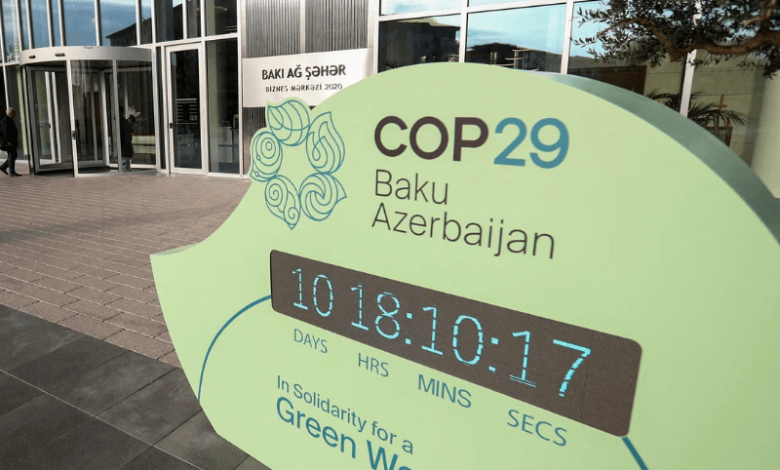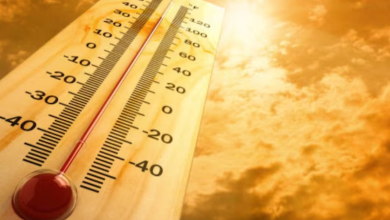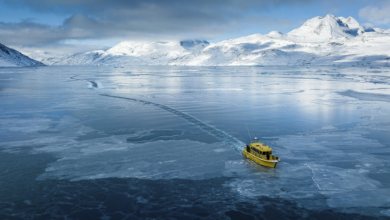From Pledges to Progress: What’s and Who’s on the Table at COP29?

Climate financing is the summit’s most important question. In order to help them reduce greenhouse gas emissions in line with the quickly decreasing hope of keeping global warming to 1.5C over preindustrial levels and to help them deal with the increasingly obvious extreme weather that rising temperatures are causing, developing nations want guarantees that trillions of dollars will be sent to them over the course of the next ten years.
A wide range of participants, including members of the public, private sector, governments, IGOs, NGOs, researchers, artists, decision-makers, and civil society representatives, will gather at this central hub for climate change action to present and exchange their ideas and visions for a future with zero carbon emissions.
Key issues to Address:
Climate finance:
The New Collective Quantified Goal, or NCQG, is the acronym that is taking center stage at this year’s conference. When the existing $100 billion pledge expires at the end of this year, the new annual climate financing objective is supposed to take effect.
Transition from fossil fuels:
At the conclusion of the COP28 meeting in Dubai last year, nations made the first-ever commitment to “transition away from fossil fuels in energy systems.” The nations will discuss how they are doing with their commitment to double energy efficiency and high renewable energy capacity.
Carbon market regulations:
Regulations limiting the selling of carbon credits obtained by protecting forests and other natural carbon sinks are being worked out by governments.
Increasing openness:
Although it is unclear if nations would do so, Azerbaijan hopes that during the summit, they will submit their first climate action progress reports before the deadline of December 31. The purpose of these so-called Biennial Transparency Reports (BTRs) is to outline a nation’s progress toward achieving its climate goals as well as the amount of work left to do in order to set new ones by February.
Focus on adaptation:
A framework of rules for national strategies to assist people in adapting to climate changes like warmer days, rising sea levels or dry farmlands was pledged to by nations last year. The COP29 meeting is intended to establish more precise adoption targets.
Cash for damage and loss:
The newly established Fund For Responding To Loss and Damage, which will have its headquarters in the Philippines, has raised almost $660 million since Egypt’s COP27 summit two years ago committed to helping poor nations with the costs of climate-driven disasters such major floods, storms, or drought.
Rich countries will be urged to contribute more to the fund by climate-vulnerable nations.
Key voices at the COP29 climate summit in Baku:
CHINA
Both renewable energy sources and climate-warming fossil fuels are used to generate the most energy in China. China is the largest emitter of greenhouse gasses contributing almost 30% of global carbon emissions annually.
The United States
The highest emitter in history and the second-largest emitter in the world attends COP29 after an election that will return Donald Trump to power in 2025.
The European Union
On some of the most heated issues for COP29, the 27-member EU has yet to express its stance.
The United Kingdom
Following Energy Minister Ed Miliband’s statement that Britain is “back in the business of climate leadership,” the July-elected Labour Party administration in Britain is going to emphasize its climate commitment at COP29.
THE TROIKA
Last year, the host nations of COP28, COP29 and COP30 referred to themselves as “the troika” and stated that they were working together to maintain stability in the yearly U.N. climate meetings.
The fundamental nations
Brazil, South Africa, India and China being rapidly developing and densely populated countries are likely to impact global efforts to address climate change.
A group of negotiators from Africa
SMALL ISLAND STATES’ ALLIANCE
The AOSIS bloc, a powerful group of nations heavily impacted by climate change particularly sea level rise is committed to obtaining trillions of dollars in climate funding and promoting international initiatives to phase out the use of fossil fuels.
List of world leaders and others who are expected to attend the conference:
- Ilham Aliyev, Azerbaijani President
- Mukhtar Babayev, COP29 President-Designate
- Sultan Al Jaber, COP29 President
- Marina Silva, Brazil Environment Minister
- António Guterres, UN Secretary General
- Simon Stiell, Executive Secretary of the UN Framework Convention on Climate Change
- Mia Mottley, Prime Minister of Barbados
- Ajay Banga, World Bank President
- Wopke Hoekstra, EU Climate Commissioner
- Liu Zhenmin, China’s Climate Spokesperson
- Ed Miliband, UK secretary of State for Energy Security and Net Sero
- Keir Starmer, Prime Minister of the UK



